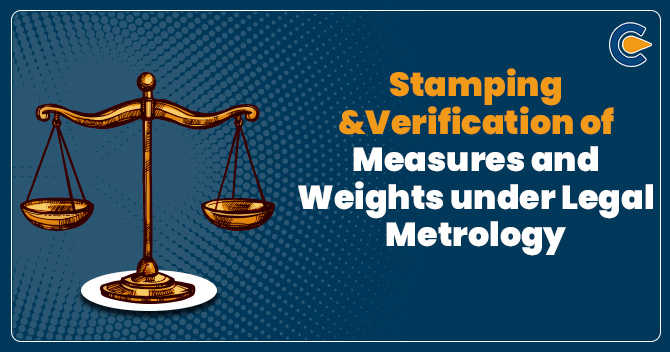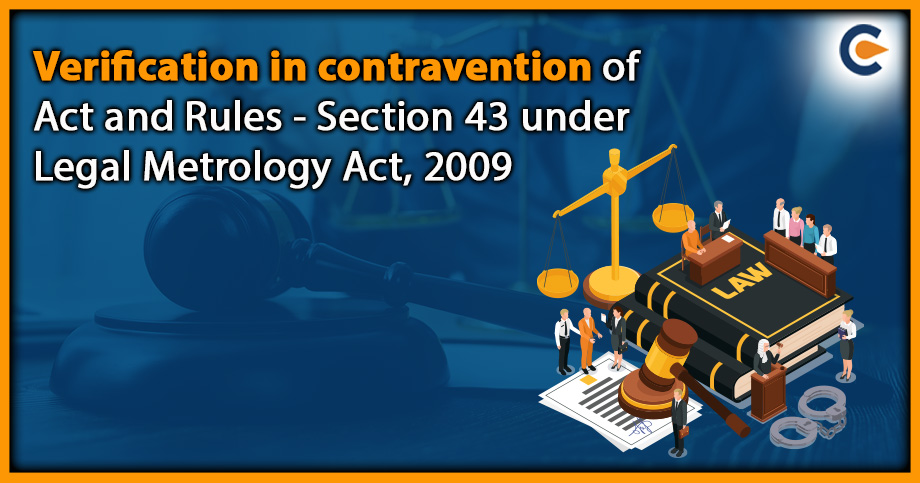In an attempt to provide customers with security & confidence when purchasing products or goods, the Legal Metrology Act, 2011 was brought to regulate trade & commerce by standardising weights & measures throughout the country. One of these measures is stamping & verification of measures and weights under Legal Metrology. In this write-up, we aim to guide traders on the rules & practices to follow on stamping & verification of measures and weights under Legal Metrology.
Legal Metrology Act – Stamping & Verification of Measures and Weights
The key provision for stamping &verification of measures and weights is Section 24 of the Act and it provides as follows:
- Every individual having any weight or measures in their possession, control, or custody in the circumstances showing that such weight or measure is being, or is aimed, or is likely to be, used by him in any transaction/for protection, shall, before putting such measure or weight in to such use, have such measure or weight verified at such place & during such hours as the Controller may, by general order, a state in this behalf, on payment of such fees as may be prescribed.
The necessities to fall under the purview of the above-mentioned definition are twofold:
- Having a measure of weight in possession, control, or custody;
- Such measure is aimed or is likely to be used for protection or in a transaction.
This Section has caused some trouble, as industrial manufacturing enterprises have often been inspected, inviting a relook of the terms protection& transaction. Under Section 2(u) of the Act transaction has been described:
- Transaction:
- Any contract, whether for purchase, sale, exchange, or any other purpose;
- Any assessment of royalty, duty, toll, or other dues;
- The assessment of any work done, services provided, or wages due.
- Protection: It means the utilisation of reading attained from any measure or weight for the purpose of determining any step which is needed to be taken to protect the well-being of any human being or animal or to safeguard any vegetation, commodity, or thing, whether collectively or separately.
Therefore, only wherever the process or selling-buying, exchange, etc., or a process of reading any weight/measure is taking place for the customer protection, the measure or weight so used shall be needed to be verified. Particularly, this means that measures or weights that are being used within industrial premises or used in any intermediary processes at the time of production will not be required to be examined. This has also been explained by the Legal Metrology Division of the Department of Consumer Affairs[1] .
Different Government Approved Test Centres
According to Section 24(2) of the Act read to the Legal Metrology (Government Approved Test Centre) Rules, 2013, specified weights & measures are required to be examined at Government Approved Test Centres. These are:
- Load Cell;
- Clinical Thermometer;
- Counter Machine;
- Sphygmomanometer;
- Automatic Rail Weighbridges;
- Beam Scale;
- Tape Measures;
- Water Meter;
- Weights of all categories;
- Non-automatic weighing instrument of accuracy class IV or Class III (up to 150kg).
Reverification – Stamping & Verification of Measures and Weights
Reverification is compulsory and prescribed under the Legal Metrology (General) Rules, 2011. Rule 27 states reverification should be carried out on the completion of:
- 24 months for all weights, length measures, tape, counter machine, capacity measures;
- 6 months for storage tanks;
- 12 months for all measure or weight comprising tank lorry other than that above mentioned;
- Moreover, any dismantling, repair, or reinstallation should require reverification prior to use.
Penalties – Stamping & Verification of Measures and Weights
Under Section 33 of the Legal Metrology Act, usage of an unverified measure or weight involves a minimum fine of Rs. 2000/- and a maximum of Rs. 10,000 for the 1st offence. Subsequent offences shall involve the imprisonment, which may extend up to one year, along with a fine. Similar penalties also exist for the usage of non-standard measures & weights.
Conclusion
Particularly, these necessities are applicable to all individuals, irrespective of the size of the undertaking. Smaller businesses must buckle up; a surprise visit by the Controller might be around the corner.
Read our Article:Compliance under Legal Metrology











